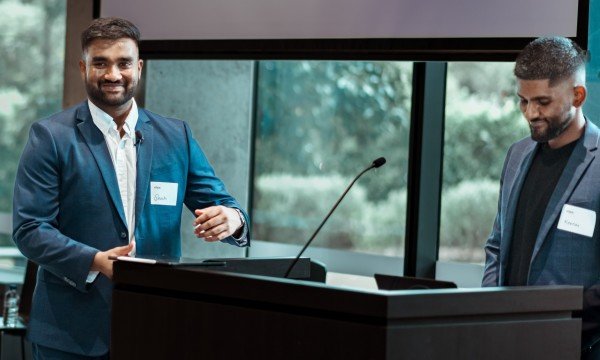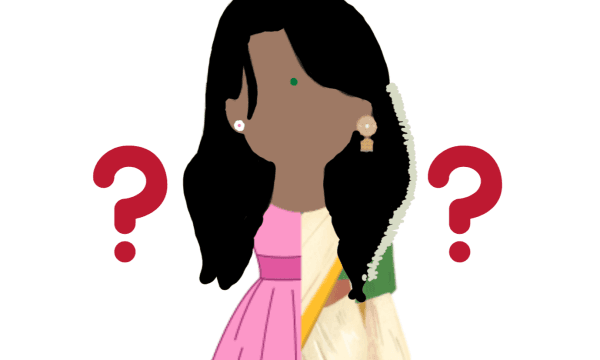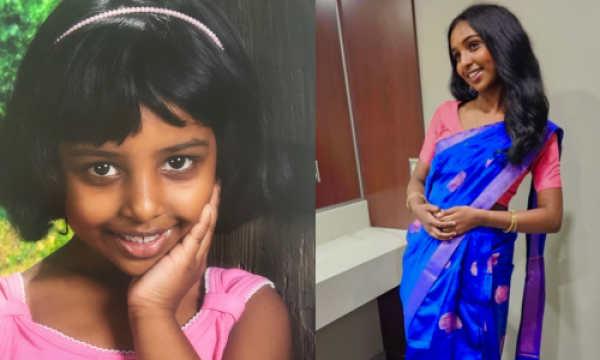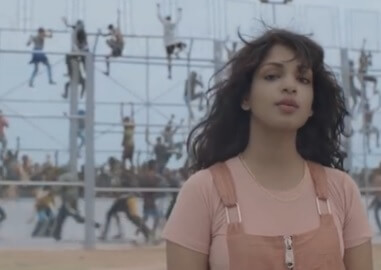
Mathangi “Maya” Arulpragasm, known by her stage name M.I.A., was interviewed by Richard Godwin of the Evening Standard in an article published on April 22 during which she was asked about Beyoncé’s Super Bowl 50 half-time performance. While not having seen the performance herself, she replied:
‘It’s interesting that in America the problem you’re allowed to talk about is Black Lives Matter. It’s not a new thing to me — it’s what Lauryn Hill was saying in the 1990s, or Public Enemy in the 1980s. Are Beyoncé or Kendrick Lamar going to say Muslim Lives Matter? Or Syrian Lives Matter? Or this kid in Pakistan matters? That’s a more interesting question. And you cannot ask it on a song that’s on Apple, you cannot ask it on an American TV programme, you cannot create that tag on Twitter, Michelle Obama is not going to hump you back.’
The question was posed following a discussion of M.I.A.’s own controversial performance at the sporting event four years ago when she brandished her middle finger. To M.I.A., the gesture was an attempt to upset the status quo. In the same vein, Beyoncé’s performance was a middle finger to police brutality and state complicity in the oppression of African Americans, following a year that saw the death of Freddie Gray, the Flint Water Crisis and clashes between police and protesters throughout the United States. And it was effective. The performance was dissected and discussed on news programs and social media more than the Denver Broncos victory.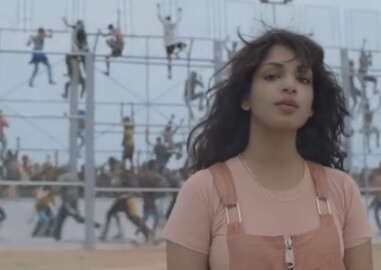 M.I.A. in her video for "Borders"
M.I.A. in her video for "Borders"
Godwin points out that M.I.A. is the only South Asian musician at her level on the world stage. He observes that there is a sense of frustration in her words, revealing the stress of being a spokesperson against the oppression of religious and ethnic minorities. Maya was born in Hounslow, West London but at six months old relocated to Jaffna, Sri Lanka, the cultural capital of Tamil northern Sri Lanka. During the civil war that erupted there in 1983, Maya and her family were displaced and with her mother and brother, she eventually settled in London as a refugee. She has since become an outspoken advocate for the Tamil community and other refugees and displaced peoples. Black Lives Matter protest in Baltimore, MD
Black Lives Matter protest in Baltimore, MD
The singer’s comments raised the ire of activists who said she invoked “Oppression Olympics” which in this instance pit the African American community against Muslim, Arab and South Asian communities and ignored the intersectionality between these groups. Nonetheless, there was an agreement that the issues discussed by Black Lives Matter are not new. Black Lives Matter is a protest movement that builds on the work of civil rights activists throughout the centuries of African American oppression in the United States. The political gains made by these movements have also been beneficial to other non-white Americans and for this reason, there is a segment of black activists that are weary of carrying the “oppressions of others” on their backs. Prominent Black Lives Matter advocate and Baltimore mayoral candidate, Deray Mckesson noted that protesters were not “allowed” to talk about Black Lives Matter but were “teargassed for standing up.”
While misinformed, M.I.A. brought attention to an ongoing discussion within the Asian American community about anti-black racism and the need for solidarity between black and brown people. It is important to note that the issue of racial division is not unique to the United States. Black and brown people in Canada, including Tamil Canadians have been victim to racial profiling, hate crimes and prejudice. On the other hand, like South Asians in the United States, South Asians in Canada also have the privilege of being deemed a “model minority”: a minority group that has achieved considerable socioeconomic success. The myth of the model minority glosses over the very real social and economic disparities within our community while also pitting South Asian Canadians against other racial minorities. Altogether, this prevents multiracial organizing against systemic oppression.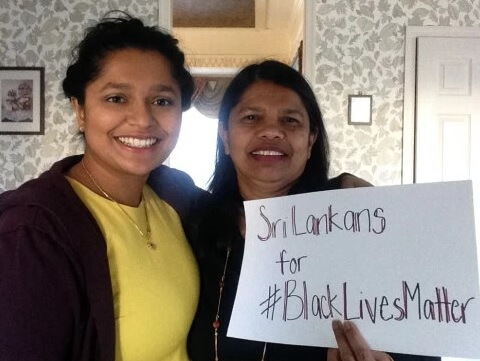 Activist Vidushani Jayalal & her mother Vinitha
Activist Vidushani Jayalal & her mother Vinitha
When asked by Ruchika Tulshyan what changes within the South Asian community were needed to promote solidarity, Deepa Iyer, author of We Too Sing America: South Asian, Arab, Muslim and Sikh Immigrants Shape Our Multiracial Future, said that:
We need to talk about how the oppression of the Black Lives Matter movement is connected, although different, to some of the oppression South Asian communities face. In particular, you can look at the role of the state in police brutality, immigrant detentions and deportations, and surveillance of the Muslim communities. So the linkages are there for us to find, so we can connect our own histories and our oppressions to that movement as well. And see that we’re in it together.
Discussions around anti-black racism and building black and brown solidarity are being had in South Asian homes in the United States and increasingly in Canada. Below are resources for starting these discussions within your own home:
http://www.seeding-change.org/asiansforblacklives/
http://blackdesisecrethistory.org/
Is the Black Lives Matter movement important to you, why or why not? Sound off in the comments.







